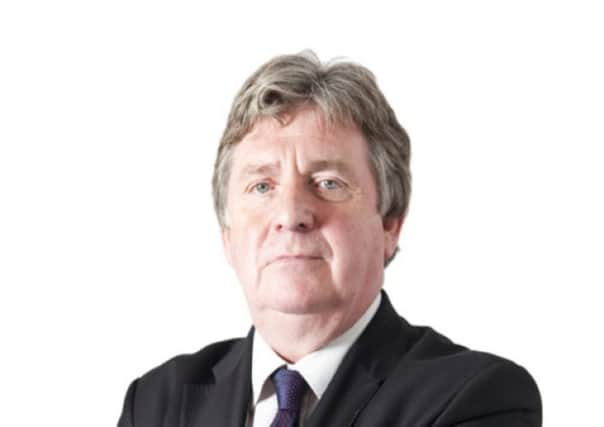Comment: Aviva cheers investors as recovery continues


Impressive stuff. It’s a business variation, I suppose, on the line of politicians in another sphere: much done, much still to do. A way of reaping credit for tangible achievement, but assuring against perceived complacency simultaneously.
Wilson has made a good fist of his first two years. He has made solid strides in turning around Aviva in terms of organic performance. Profits rose 6 per cent to £2.2 billion last year, and the company, which has sizeable Scottish general insurance operations, is shortly to complete the £5.6bn takeover of Friends Life.
Advertisement
Hide AdAdvertisement
Hide AdThis shows both an eye for operational efficiency and strategic opportunity (although some would argue the Friends purchase, with an estimated 1,500 redundancies, is more about costcutting than revenue synergies).
Back on the day job, Wilson oversaw a 15 per cent lift in the value of new business at Aviva, helping counter currency swings and the additional regulatory costs that are endemic to the financial sector.
General insurance did better, managing to largely shrug off the impact of the widespread flooding at the start of 2014. Wilson suggested Aviva Investors, the group’s fund management division, was one of the areas he hoped to be making more of a contribution to profitability as time goes by. No pressure on that arm, then.
The Antipodean boss, who once amusingly suggested the prevalence of UK whiplash claims compared with mainland Europe suggested we had either weak or brass necks, also wants more cross-selling at Aviva. He reckons the number of products per customers is still totally unsatisfactory and costs remain too high. But despite caveats, there was enough in the positive underlying performance at this stage of the recovery to propel Aviva to second biggest riser on the Footsie leaders’ board, and drag many other insurers along in its slipstream.
The insurer may well be only a work in progress, but there are substantial signs of it.
BoE and fraud agency in same headline shock
The news that the Bank of England secretly referred the findings of an independent investigation into its own liquidity auctions at the height of the financial crisis to the Serious Fraud Office (SFO) last November is fascinating.
Nobody should pre-judge the ongoing SFO inquiry; speculation outweighs public evidence at this juncture. But the Bank enjoys such a magisterial position at the apex of the regulatory framework that even the theoretical possibility that there could have been impropriety surrounding the way capital was pumped into markets to help forestall apocalypse will raise a lot of eyebrows, and not just the Bank governor’s.
There are some echoes of Lloyds Banking Group being fined and criticised by Bank of England governor Mark Carney last year for its traders having rigged interest rates to cut fees for its BoE emergency lifeline in the financial crisis.
Advertisement
Hide AdAdvertisement
Hide AdThe Boe is not commenting any more at this stage, and that is right in the circumstances. But, once again, when you think the murkiness of the financial sector waters has cleared it silts up again.
SUBSCRIBE TO THE SCOTSMAN’S BUSINESS BRIEFING